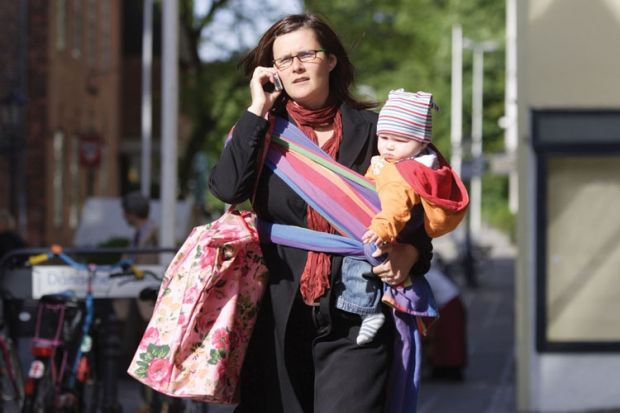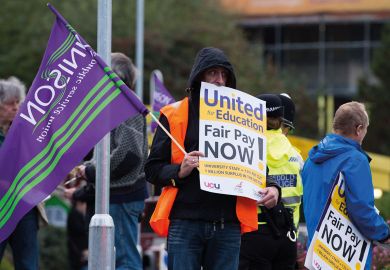Source: Alamy
What do they want? Institutions urged to ask women about support needs
Discrimination against women persists in the UK academy, even in institutions that have been recognised for their good employment practices, according to the 2014 Times Higher Education Best University Workplace Survey.
Of the survey’s 4,584 respondents, who hold academic, professional and support roles across the sector, 63 per cent agree or strongly agree with the statement “my university offers a fair and effective equal opportunities policy”, but more than one in three (37 per cent) do not.
Academics identifying themselves as arts and humanities scholars have the least confidence in their university’s approach to equal opportunities, with less than half (46 per cent) of the 4 respondents in these areas saying they felt their institution’s policy was up to scratch. Among the 218 academics working in medicine, veterinary medicine or dentistry, this figure rises to 62 per cent – the highest of any subject grouping.
However, it is in the 6,500-plus comments left by the survey’s many participants that more nuanced detail about difficulties faced by university employees is revealed.
“The promotion and reward structure discriminates against women,” writes one Russell Group arts and humanities academic. “Powerful men at the top exist in their own bubble, making often bad decisions without consultation.”
At a research-intensive university in northern England, one academic recalls being told she had failed to do enough work during maternity leave following the birth of her first child. Despite praising her institution for programmes that help women address “issues that result from having children”, she says it is still possible to be “harassed out of your academic career…by a single powerful woman with very fixed views about maternity leave”.
Several complaints came from within universities holding Athena SWAN awards, which celebrate good employment practices for women in science, technology, engineering, maths and medicine.
“No one has ever asked the women in our school what they really want in terms of support,” said an academic at one such institution, while another alleged that their university does not consider how its policies “affect female professional support staff”.
David Ruebain, chief executive of the Equality Challenge Unit, which operates the Athena SWAN charter, said he was concerned by the comments.
“Even where awards are already held, holders need to continue to act on the key issues facing their staff if they are to renew or progress further.”





